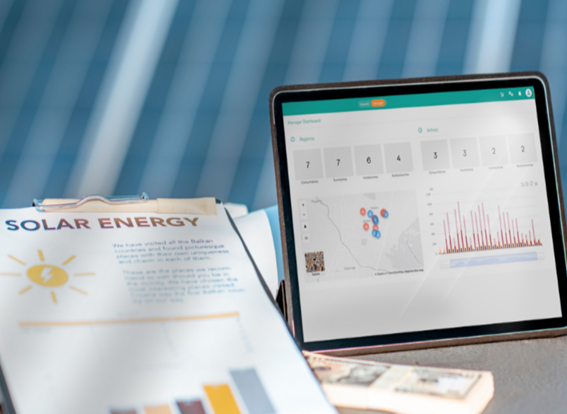Billing in Energy Self-Consumption: How to Optimize It?
Billing is one of the fundamental pillars in the management of energy self-consumption projects. This process, which involves the distribution of costs and benefits among participants, can become complex if adequate tools and methodologies are not available.
Optimizing billing not only reduces administrative and operational costs but also contributes to the economic sustainability and success of the project.
What Challenges Can Arise in Self-Consumption Billing?
Fair distribution of the generated energy: In collective self-consumption, the generated energy is distributed among participants according to pre-established coefficients. Ensuring that this distribution is fair and transparent is crucial to maintaining user trust.
Variety of data to manage: It is necessary to integrate information on consumption, generation, grid injection, and savings, which can complicate manual calculations and increase the risk of errors.
Regulatory compliance: Billing must comply with local and national energy and tax regulations, adding complexity to the process

Automation: The Key to Optimizing Billing
Automating the billing process presents itself as an effective solution to overcome these challenges. Tools like E-Manager centralize and digitize operations, reducing administrative costs and improving accuracy.
Here’s how automation optimizes billing:
Data centralization: Digital platforms allow for the collection and management of all energy information in a single place, facilitating the issuance of personalized and detailed invoices for each participant.
Automated calculations: Distribution coefficients and other variables are calculated automatically, eliminating manual errors and ensuring a fair allocation of costs and benefits.
Transparency and information access: Users can access their energy data online, from both laptops and mobile devices, reinforcing their trust in the system and improving the participation experience.
Automated regulatory compliance: Automation solutions are designed to comply with local regulations, simplifying the application of taxes and specific regulations.
Reduction of operational costs: By automating repetitive and administrative tasks, companies can significantly reduce operational costs, allocating those resources to other strategic areas of the project.
Benefits for Managers and Users
For managers of energy self-consumption projects, whether individual or collective, billing automation means less time spent on administrative tasks, lower operational costs, and a more efficient system. For users, this translates into a more transparent experience, with clear access to the economic and environmental benefits of their participation.
Optimizing billing in collective self-consumption projects is essential to ensure their economic sustainability and long-term success. Automation not only reduces costs and errors but also strengthens user trust, promoting a more efficient and collaborative model. Tools like E-Manager are the perfect ally to make billing a simple, fair, and sustainable process.

